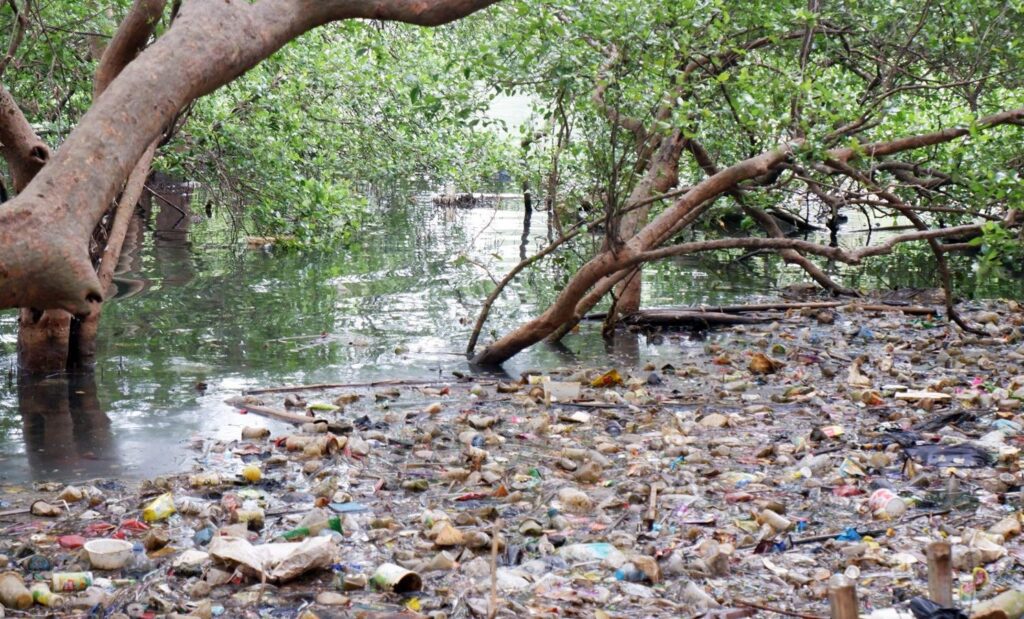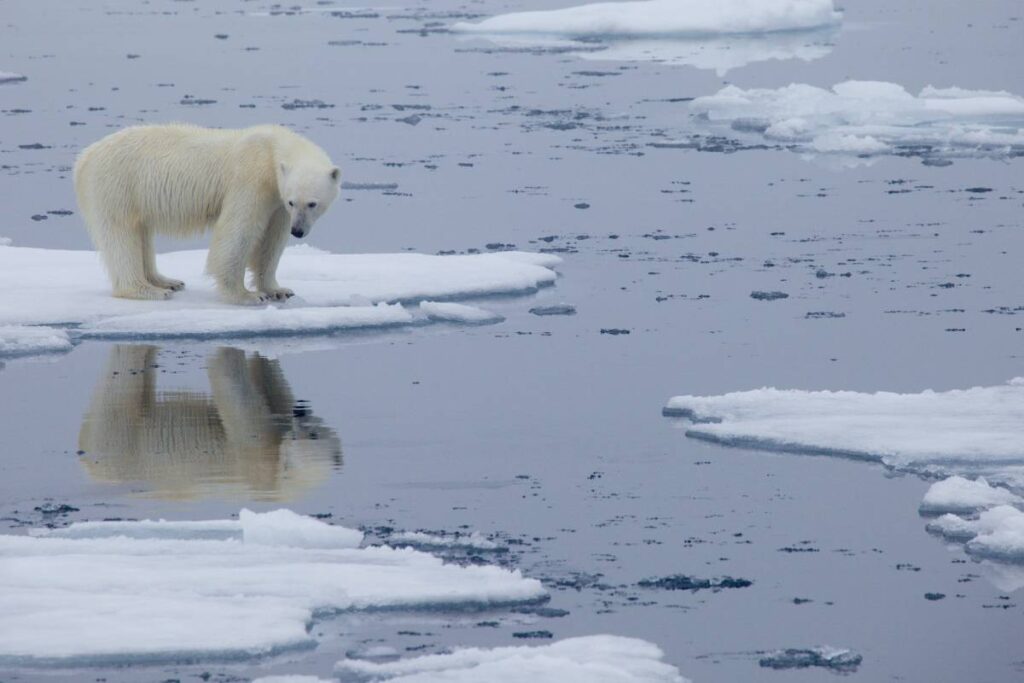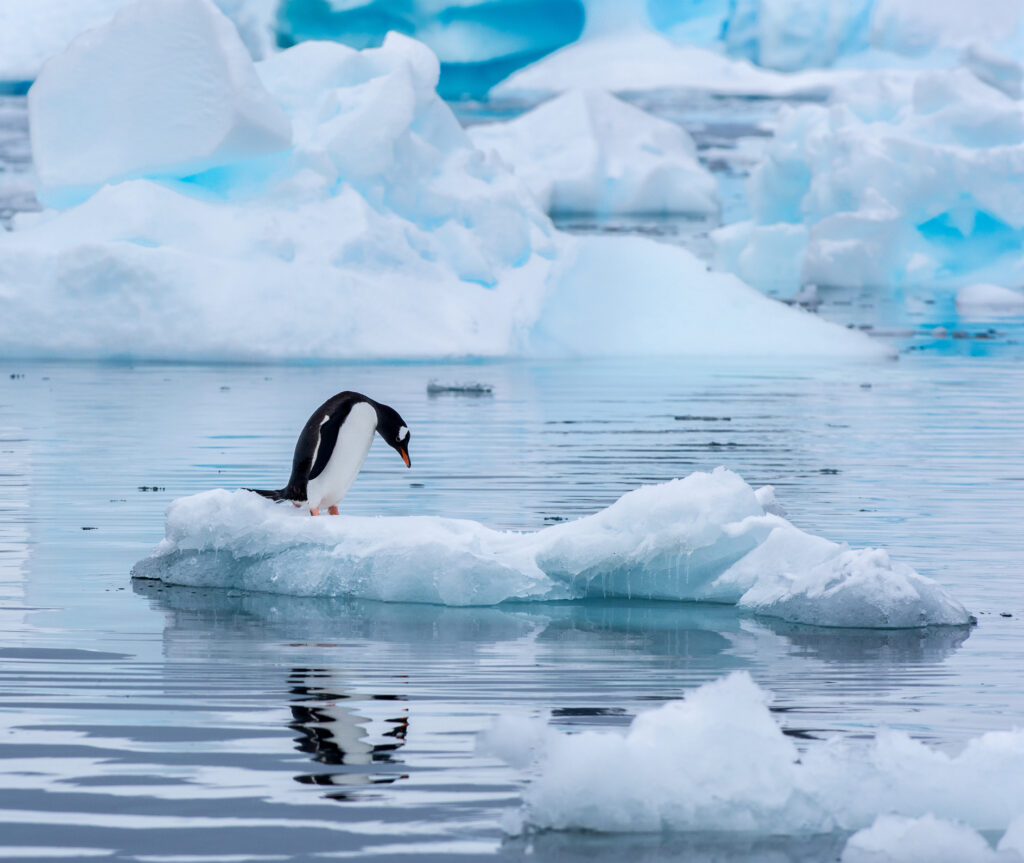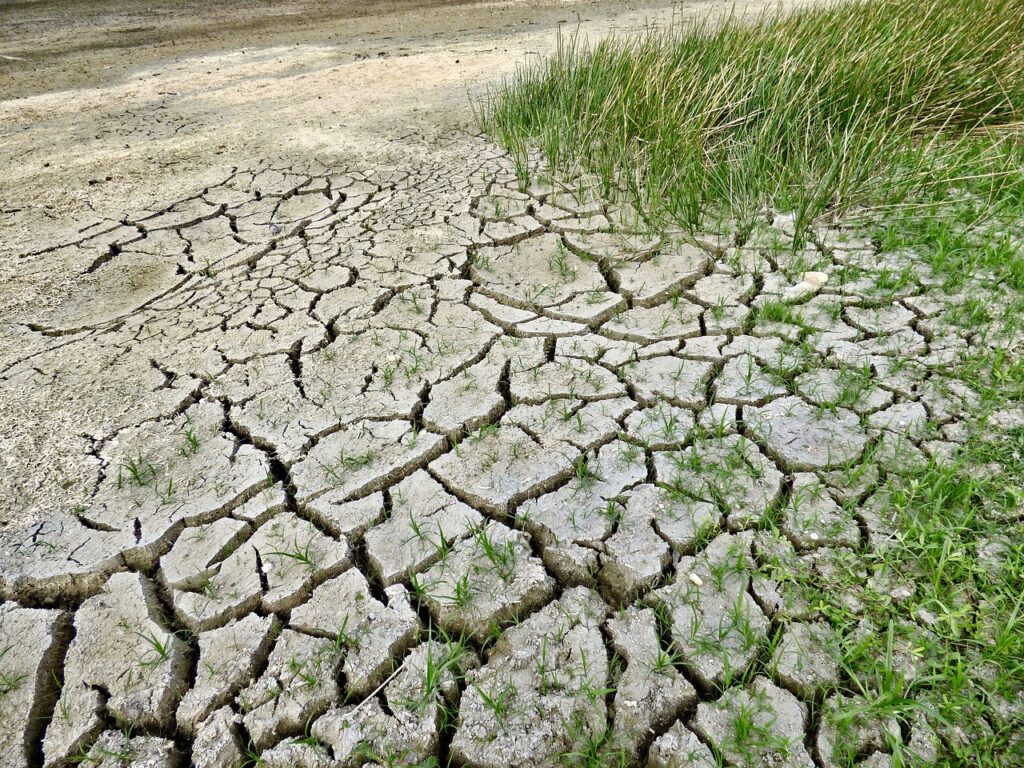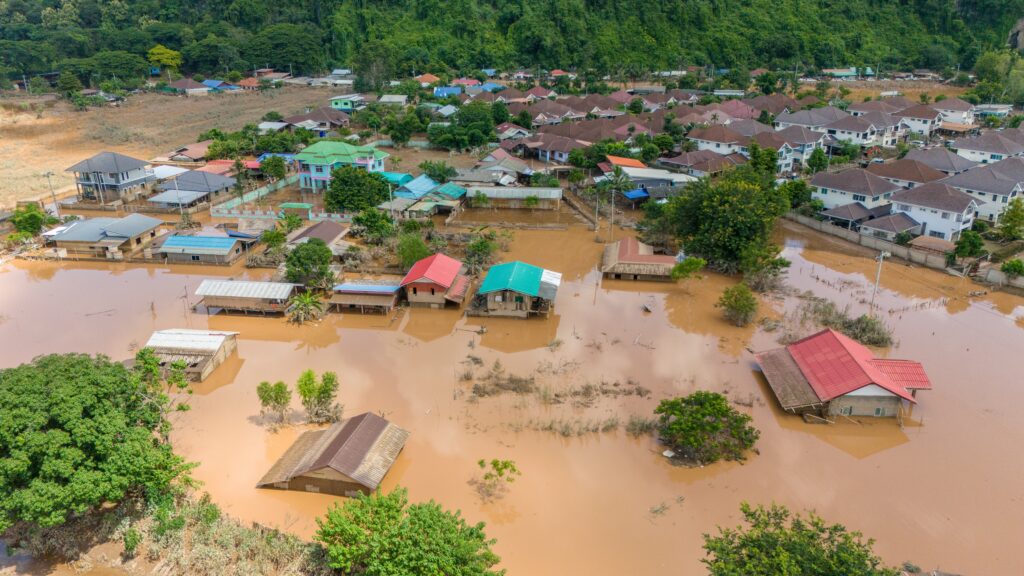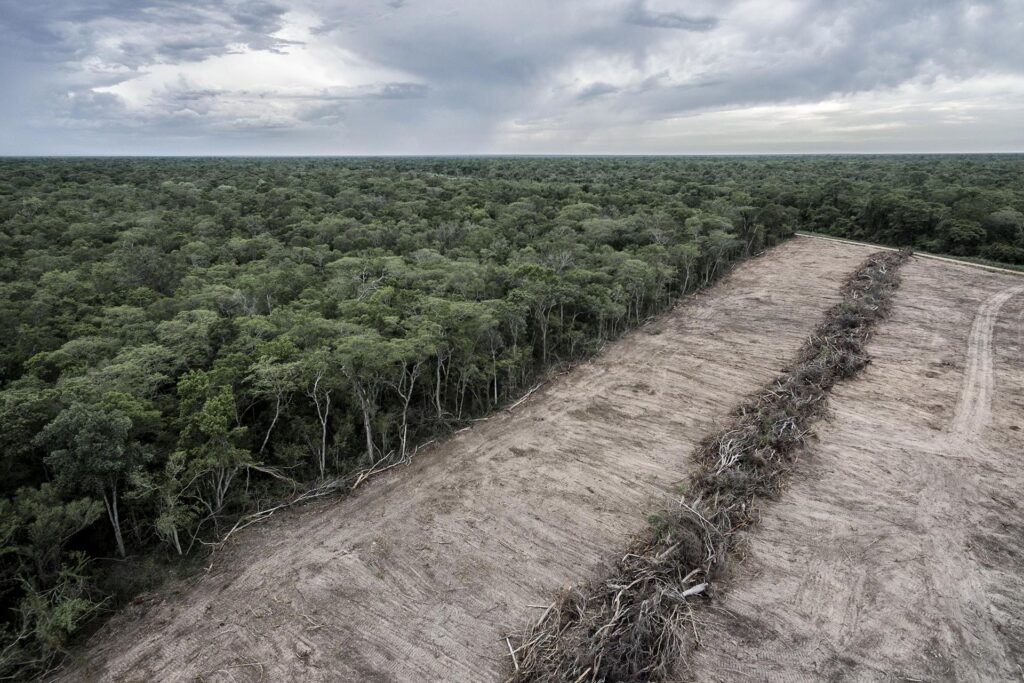The benefits of ecotourism can stretch far beyond a memorable holiday — they channel tourism revenue into climate resilience, community well-being and ecosystem health. As Asia’s cities and coastlines feel the heat of more frequent extremes, nature-based sustainable tourism development is gaining popularity as a part of climate change mitigation and adaptation solutions.
The World Travel & Tourism Council (WTTC) puts tourism’s global economic value at USD 10.9 trillion and 357 million jobs. At the same time, the Asia-Pacific ecotourism segment alone generated USD 61.8 billion in 2023 and is predicted to grow 16.8% annually through 2030. Understanding how those numbers translate into climate-smart benefits and where risks still hide is crucial in creating and implementing ecotourism policies and programs.
Why Ecotourism Matters in a Climate-disrupted World
Asia’s natural assets, mangroves that blunt storm surges, Himalayan forests that stabilise water flows and coral reefs that shield coasts are also economic lifelines. Climate change is eroding them, yet conventional mass tourism often increases that damage.
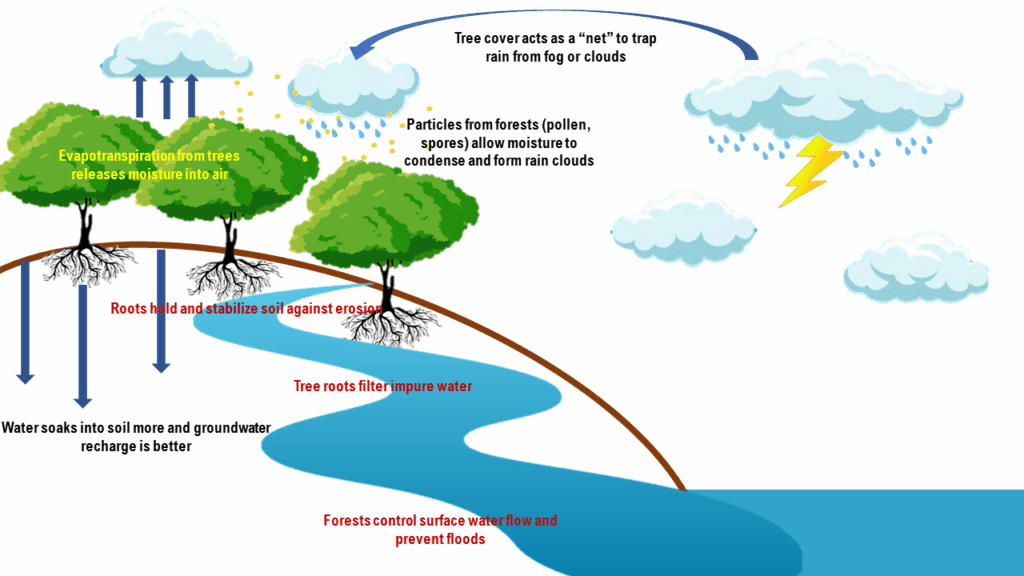
Ecotourism, when rooted in science-based standards and community ownership, flips the script by attaching direct economic value to healthy local ecosystems and by funding their upkeep.
Benefits of Ecotourism
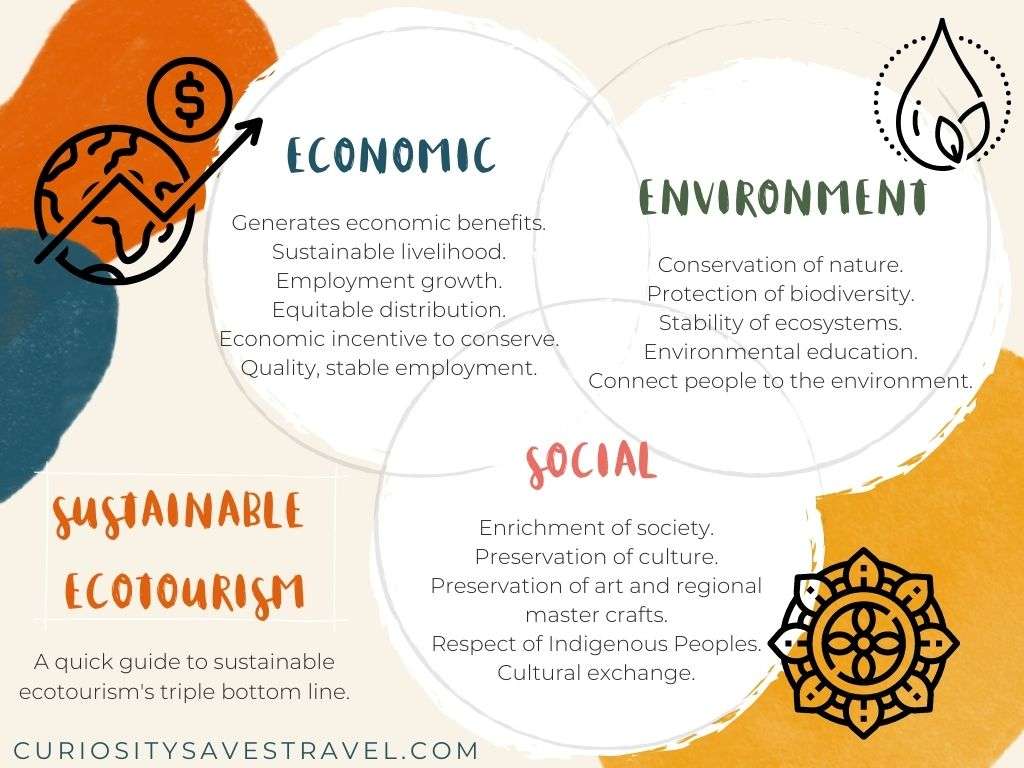
Economic Benefits and Local Communities Livelihoods
At its best, ecotourism injects reliable income into places bypassed by heavy industry while keeping control in local hands.
For example, in the Indian Himalayas, Sikkim’s community-run homestays channel 10% of every guest payment and half of campsite fees into a Village Conservation Fund that finances waste management and tree-planting. This not only protects the natural resources and natural environment but also lifts household earnings.
The model shows how modest visitor numbers, priced and managed well, can create year-round jobs and boost local economy without giving up environmental integrity.
Environmental Awareness and Education
Ecotourism is also a mobile classroom. It enhances environmental and cultural awareness. By including climate literacy in the travel experience, destinations cultivate citizen advocates who carry sustainable habits and political support for conservation back to urban centres.
A 2025 field study of visitors to the Shangri-la plateau in China found that guided interpretation and hands-on activities boosted tourists’ pro-environmental behaviour after returning home, with awe and environmental knowledge as the strongest predictors of change.
Encouraging Conservation Efforts
A core promise of ecotourism is that visitor fees become a stable conservation budget. Indonesia’s Raja Ampat archipelago makes that link explicit: international tourists pay around USD 45 for a one-year marine park permit. The revenue funds patrols, reef monitoring and community enforcement teams across one of the world’s richest coral systems. The result is a self-financing loop where healthy ecosystems attract visitors and visitors keep the ecosystems healthy.
Community Empowerment and Social Equity
Ecotourism strengthens social capital when local people design and govern it. The ASEAN Tourism Strategic Plan 2016-2025 commits members to “responsible, sustainable, inclusive and balanced tourism” that significantly improves socioeconomic well-being.
Community-led ventures, from women-run homestays in Vietnam’s highlands to Indigenous guiding cooperatives in Borneo, translate that policy into practice, strengthening cultural pride and giving marginalised groups a political voice in land-use decisions.
Disadvantages of Ecotourism
Popularity can still undermine ecosystems, particularly when not managed sustainably. For example, in Bali, studies show tourism consumes roughly 65 % of the island’s fresh water, leaving rice farmers to compete for shrinking supplies and accelerating saltwater intrusion. Even though many of the resorts on the island follow ecotourism practices, the sheer number of visitors poses a problem.
On a larger scale, tourism’s supply chains emit about 8% of global greenhouse gas emissions, highlighting how even “green” travel carries a carbon cost.
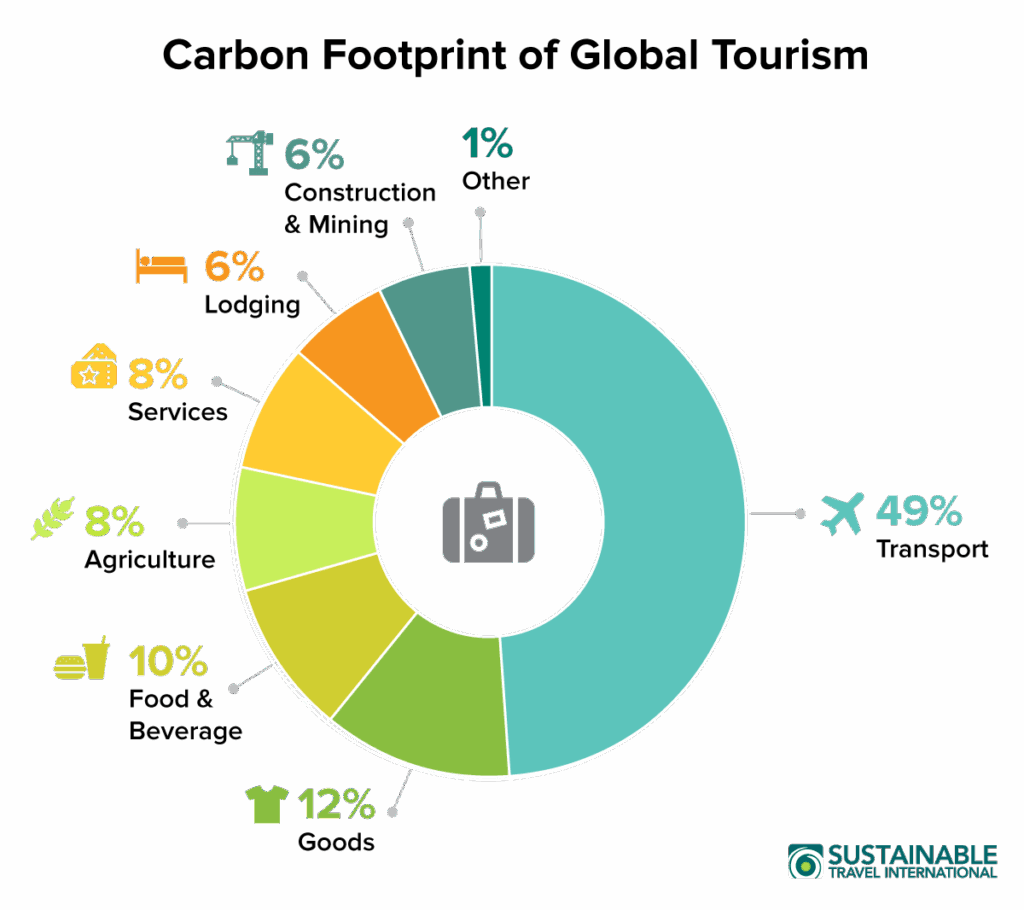
Another issue is weak certification regimes, which allow greenwashing to slip through. Hundreds of overlapping eco-labels are making it easy for operators to market “eco-lodges” that still fail to meet many core requirements of stricter ecotourism standards.
Scaling Ecotourism Activities for Financial Benefits for a Sustainable Future
Maximising the advantages of ecotourism while containing its risks demands integrated policy, finance and monitoring. Governments can align national standards with the Global Sustainable Tourism Council and link tax incentives to verified carbon-reduction targets.
Equally important is genuine community governance: the Sikkim fund and Raja Ampat permit system show that when residents see real returns, they become stewards rather than bystanders. Finally, governments must have access to the necessary data to make informed decisions. Developing regional data dashboards that track biodiversity indicators, emissions and income distribution in real time allows rapid course corrections as climate pressures mount.
Ecotourism Benefits and Role in Climate Action and Environmental Justice
Handled responsibly, the benefits of ecotourism weave climate science into everyday life: travellers learn, locals earn and ecosystems gain new guardians. Failures in Bali and Boracay show the cost of weak regulation. Still, successes in India, Raja Ampat and China’s plateau reserves prove that science-based, community-centred models can deliver prosperity and protection.
For leaders, the roadmap is clear: embed rigorous standards, empower communities and treat natural capital as the foundation of long-term prosperity. Only then will ecotourism fulfil its promise as a sustainable growth and environmental justice catalyst.
Eric Koons
Writer, United States
Eric is a passionate environmental advocate that believes renewable energy is a key piece in meeting the world’s growing energy demands. He received an environmental science degree from the University of California and has worked to promote environmentally and socially sustainable practices since. Eric has worked with leading environmental organisations, such as World Resources Institute and Hitachi ABB Power Grids.
Eric is a passionate environmental advocate that believes renewable energy is a key piece in meeting the world’s growing energy demands. He received an environmental science degree from the University of California and has worked to promote environmentally and socially sustainable practices since. Eric has worked with leading environmental organisations, such as World Resources Institute and Hitachi ABB Power Grids.


